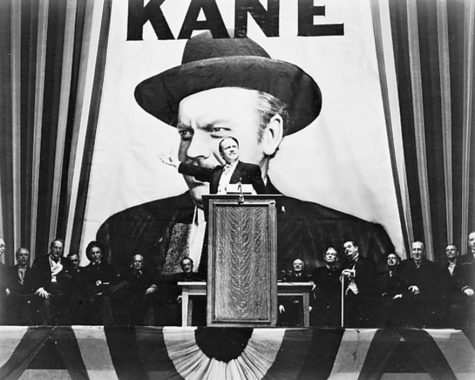What Makes a Good Film With Mr. Scotch
March 23, 2021
Cinema is revolutionary. It has the power to make us feel deep emotions and can change our perspectives. According to researchers at the Aalto University of Finland, “viewing a movie creates multi-level changes in the brain function. Despite the complexity of the stimulus, the elicited brain activity patterns show remarkable similarities across different people – even at the time scale of fractions of seconds.”
I recently spoke with the TV Broadcasting and Film Studies teacher Mr. Scotch to hear his opinion on what constitutes a “memorable” film.
Mr. Scotch, an avid film viewer, and teacher of Film 1 and Film 2 in the high school, noted that the words “movie” and “film” are often interchangeably used but are quite different: “A film, somehow, engages us, challenges us, intellectually and emotionally, and often philosophically. A movie is just about suspense and it’s really just about the movement from the beginning to end”
When Mr. Scotch watches films, he looks out for specific characteristics that determine the quality of the film. One element that helps to define the viewer’s experience is the creativity of the cinematographer and director. There is a responsibility on the part of the cinematographer to design scenes that reinforce what the movie is trying to deliver. Some of the conscious decisions that these creators experiment with are “angles, lighting, shots, pacing, [and] structure” that “all work to develop character, conflict, and theme.” These conscious decisions are made to not only engage the viewer but also to lead them to ask questions and to interpret the experience from [a different?] perspective.
Mr. Scotch added that films have the power to “take you on a journey where you are transported into that character’s world, emotionally, and sometimes almost physically. Certainly you share what it is that character is going through.”
Mr. Scotch on three Film “Classics”
To provide an example, Mr. Scotch spoke of the movie Whale Rider, which “reminds us of what it means to be someone, what does it mean to be the one? And yet it is completely about society today and a New Zealand tribe that is not being represented. It’s really relevant to what is happening socially. Anytime I look up at my shelf of movies and I come across that one, I’m like, ‘That is so good.’”

It is interesting, though, how some blockbuster films and movies may fulfill the criteria of showing artistry but do not resonate with a viewer to deliver the “blockbuster” effect. Mr. Scotch relates to this dilemma when it comes to the influential 1941 film, Citizen Kane. “I see it, but it doesn’t transport me there. As far as what it did in its time, that might be another thing to consider.” While Citizen Kane delivers emerging ideas, modern shots, and cinematic concepts and techniques that were pivotal for the time period, Mr. Scotch suggests that the themes themselves did not resonate with him.

I proceeded to ask Mr. Scotch about another highly acclaimed blockbuster, The Godfather, to get his take on why this may be one of the most reputable films of all time. It is clear that Coppola successfully executed the bridge between artistic cinematic technique and powerful themes to create this timeless film.

“You can feel that cultural ethos that it participates in,” said Mr. Scotch. “And so, you almost feel a shared experience, something that I don’t feel when I watch Citizen Kane, which is more of an intellectual experience.” The values of loyalty, family, power, and responsibility that The Godfather presents are more meaningful to many in contrast to the themes of society, class, and wealth which Citizen Kane presents. Mr. Scotch also noted that those who are born within a time period of a film are more apt to relate to its messages.
Scotch concluded by saying, “I think that there may be something about the viewer’s experience that allows the viewer to connect to it.” This connection is the ultimate goal of the cinematographer.


















Maya • Mar 26, 2021 at 8:54 am
Always glad to hear Mr. Scotch’s cinematic opinions 🙂